第19章 A DANGEROUS DIET(6)
What a delicate and dangerous thing is the art of eating in these carnivorous larvae supplied with a single victim, which they have to spend a fortnight in consuming, on the express condition of not killing it until the very end! Could our physiological science, of which, with good reason, we are so proud, describe, without blundering, the method to be followed in the successive mouthfuls? How has a miserable grub learnt what our knowledge cannot tell us? By habit, the Darwinians will reply, who see in instinct an acquired habit.
Before deciding this serious matter, I will ask you to reflect that the first Wasp, of whatever kind, that thought of feeding her progeny on a Cetonia-grub or on any other large piece of game demanding long preservation could necessarily have left no descendants unless the art of consuming food without causing putrescence had been practised, with all its scrupulous caution, from the first generation onwards. Having as yet learnt nothing by habit or by atavistic transmission, since it was making a first beginning, the nurseling would bite into its provender at random. It would be starving, it would have no respect for its prey. It would carve its joint at random; and we have just seen the fatal consequence of an ill-directed bite. It would perish--I have just proved this in the most positive manner--it would perish, poisoned by its victim, already dead and putrid.
To prosper, it would have, although a novice, to know what was permitted and what forbidden in ransacking the creature's entrails; nor would it be enough for the larva to be approximately in possession of this difficult secret: it would be indispensable that it should possess the secret completely, for a single bite, if delivered before the right moment, would inevitably involve its own demise. The Scoliae of my experiments are not novices, far from it: they are the descendants of carvers that have practised their art since Scoliae first came into the world; nevertheless they all perish from the decomposition of the rations supplied, when I try to feed them on Ephippigers paralysed by the Sphex. Very expert in the method of attacking the Cetonia, they do not know how to set about the business of discreetly consuming a species of game new to them. All that escapes them is a few details, for the trade of an ogre fed on live flesh is familiar to them in its general features; and these unheeded details are enough to turn their food into poison. What, then, happened in the beginning, when the larva bit for the first time into a luscious victim?
The inexperienced creature perished; of that there is not a shadow of doubt, unless we admit an absurdity and imagine the larva of antiquity feeding upon those terrible ptomaines which so swiftly kill its descendants to-day.
Nothing will ever make me admit and no unprejudiced mind can admit that what was once food has become a horrible poison. What the larva of antiquity ate was live flesh and not putrescence. Nor can it be admitted that the chances of fortune can have led at the first trial to success in a system of nourishment so full of pit-falls: fortuitous results are preposterous amid so many complications. Either the feeding is strictly methodical at the beginning, in conformity with the organic exigencies of the prey devoured, and the Wasp established her race; or else it was hesitating, without determined rules, and the Wasp left no successor. In the first case we behold innate instinct; in the second acquired habit.
A strange acquisition, truly! An acquisition presumed to be made by an impossible creature; an acquisition supposed to develop in no less impossible successors! Though the snow-ball, slowly rolling, at last becomes an enormous sphere, it is still necessary that the starting-point shall not have been NIL. The big ball implies the little ball, as small as you please. Now, in harking back to the origin of these acquired habits, if I interrogate the possibilities I obtain zero as the only answer. If the animal does not know its trade thoroughly, if it has to acquire something, all the more if it has to acquire everything, it perishes: that is inevitable; without the little snow-ball the big snow-ball cannot be rolled. If it has nothing to acquire, if it knows all that it needs to know, it flourishes and leaves descendants behind it. But then it possesses innate instinct, the instinct which learns nothing and forgets nothing, the instinct which is steadfast throughout time.
The building up of theories has never appealed to me: I suspect them one and all. To argue nebulously upon dubious premises likes me no better. Iobserve, I experiment and I let the facts speak for themselves. We have just heard these facts. Let each now decide for himself whether instinct is an innate faculty or an acquired habit.